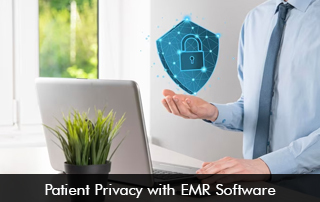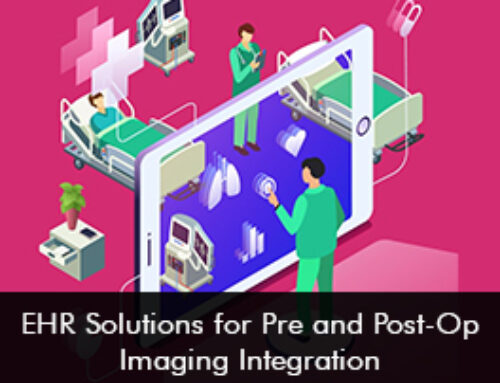The amount of data breaches is increasing alarmingly and therefore patient privacy and security should be one of the top priorities of healthcare organizations. According to the HIPAA Journal of Healthcare Data Breaches statistics data breaches have once again grown in 2022. In the year 2023, 725 data breaches were reported to OCR.
EHR Software and Digital Patient Records
Electronic Medical Records (EMR) software is intended to digitize and simplify the management of patient records in healthcare settings. These computerized records, kept in the EHR system, comprise a patient’s complete medical history, including diagnoses, treatments, prescriptions, lab results, and other important information.
Effective and coordinated patient treatment can be promoted by electronic health records software by providing medical personnel with a centralized platform to access and update patient data. EMR Software replaces paper-based records and increases accuracy, lowers mistake rates, and boosts overall operational efficiency.
Better Patient Privacy with EMR Software Systems
The adoption of EHR software is essential for maintaining patient privacy and creating a safe, reliable environment for managing electronic health records.
Here are 5 ways in which Electronic Medical Records can enhance patient security and protect patient data:
- HIPAA Compliance – Top-ranked EMR Software vendors such as athenahealth Software, and AdvancedMD EHR Software are HIPAA-compliant to protect patient data. Maintaining and fostering trust between healthcare practitioners and their patients is just as important as adhering to HIPAA regulations when it comes to electronic medical record software. Ensuring compliance with HIPAA laws is crucial for the design, deployment, and usage of EMR systems, as violations can lead to substantial penalties.
- Audit Trails – EHR software must include complete audit trails that show who accessed patient data, when it occurred, and what actions were taken. These records are critical for identifying and investigating any security events.
- Data Encryption – Data encryption techniques ensure that only authorized users can access sensitive patient data in software systems. This means unauthorized users are blocked from accessing patient records maintaining maximum patient security.
- Password Protection – Password protection in EMR Software can safeguard patient data by implementing multi-factor authentication, and using account lockout policies. This can mitigate the risk of hacking and data breaches.
- ONC-ATCB Certified – The Office of the National Coordinator for Health Information Technology (ONC) in the United States has established a certification program for Electronic Health Records (EHR) Software. The program is intended to guarantee that EMR technology fulfills specific standards and requirements, thereby encouraging interoperability, usability, and security. ATCBs are in charge of the certification process.
The Importance of Patient Data Protection
To secure patient privacy, preserve the patient-provider relationship’s trust, and guarantee legal and regulatory compliance, patient data protection is essential in the healthcare industry. In addition to being morally right, protecting private health information is also required by law, with regulations such as HIPAA imposing strict guidelines. Safeguarding patient data promotes the accuracy of medical records and the general integrity of healthcare operations by thwarting identity theft, fraud, and unauthorized access.







